The Joys and the Challenges.
“The most rewarding part of being a case manager at World Relief is watching the face of a family member reuniting with a loved one — where their whole face demonstrates joy and they embrace each other, having not known for sure whether they would ever be given this chance” – Isabella, Resettlement case manager.
“Of course, like every job, there are challenges — lots of unexpected urgencies and needs to be met. For example, a family’s utilities not working and vehicles breaking down on their way to a doctor’s appointment. In every way, the job requires a heart full of compassion and willing hands and feet to work.”
Staff in the Resettlement department at World Relief list lots of rewards: airport arrivals, family reunifications, citizenship ceremonies, first glimpses of snow, clients receiving much-needed medical care after months/years of waiting, high school and college graduations, friendships forged between people from different parts of the world who seem like they never should have met.
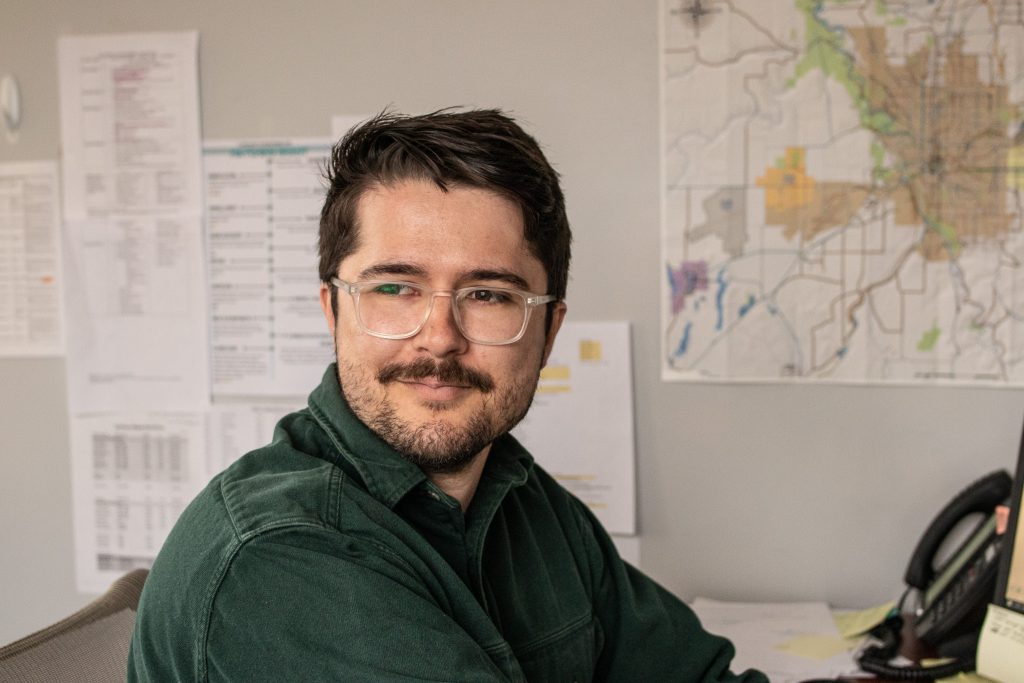
“The work that is done in the Resettlement department is very human,” said Gio, Resettlement Program Manager. “It is done by humans for humans. This human aspect is essential to our jobs and something we highly value. It’s why we are here.”
What can sometimes be missed, however, is the hard work behind the rewards.
“Alongside this very human work is a complex process of documents, contract-regulated timelines, etc. Combine this with the fact that no person’s/family’s needs are ever the same and the local environment in which we work is always changing (think housing, jobs, policies) and a complex process becomes even more complex. Because of this challenging environment, we need the help of the community in Spokane. We need volunteers, landlords, service providers and the community at large to come together to make this happen.”
The work of welcoming people is a community effort. (Repeat those last two words with emphasis: Community. Effort.)
“I would say this work is harder than people realize and better and more rewarding than people realize” – Jordan Bemis, Resettlement Director.
Jordan has been working at World Relief for 12 years, first as an intern, then as a case manager, a pre-arrival coordinator, a program manager, and now as Director of Resettlement and Placement. “The planning, the details, just the amount of work that goes into resettling one family is enormous.”
Pre-Arrival
The work of World Relief Spokane begins with resettlement. Eugenia, WR Spokane pre-arrival coordinator, is notified a few weeks before families arrive. She receives the airport arrival info, the number and ages of people in each family, where they are coming from and whether they have any US ties in the area. She arranges for them to be met upon arrival and transported to their temporary accommodations, which can vary widely – a church basement, an Airbnb, a host home. If the ethnic community has a presence in Spokane, they may be part of the welcome and provide an initial, culturally appropriate meal.
Anzhella, the initial healthcare coordinator, is also working behind the scenes prior to the family’s arrival. She reads the family’s medical records, researches their needs, sets up refugee health screenings, and coordinates healthcare providers for a smooth transition into the US healthcare system. For pregnant women and moms with young children, she makes sure they get set up with WIC. And for elderly patients, she helps them apply for SSI.
“I want to be prepared ahead of time so that families receive the care they desperately need right away.”
Early Days
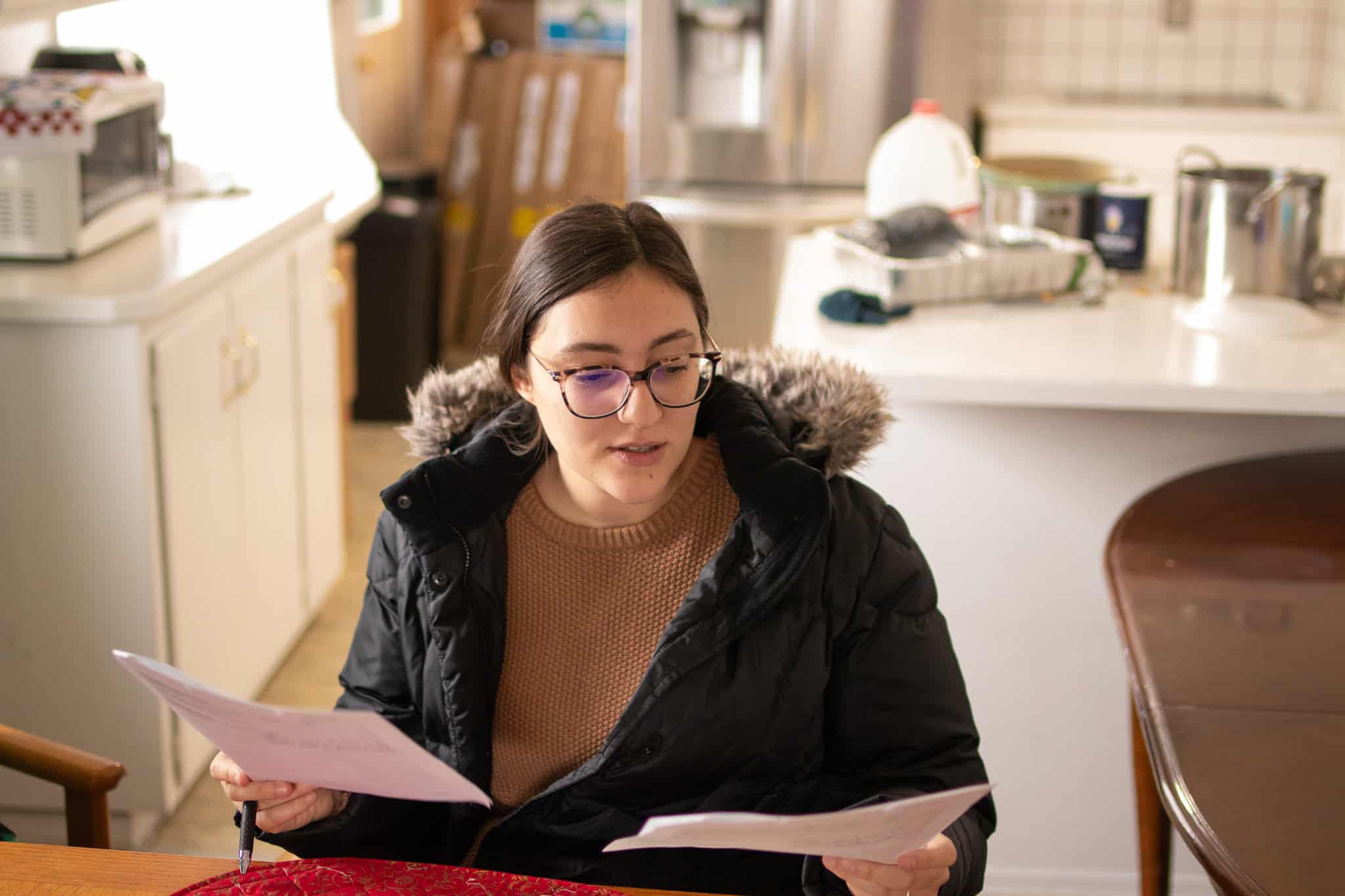
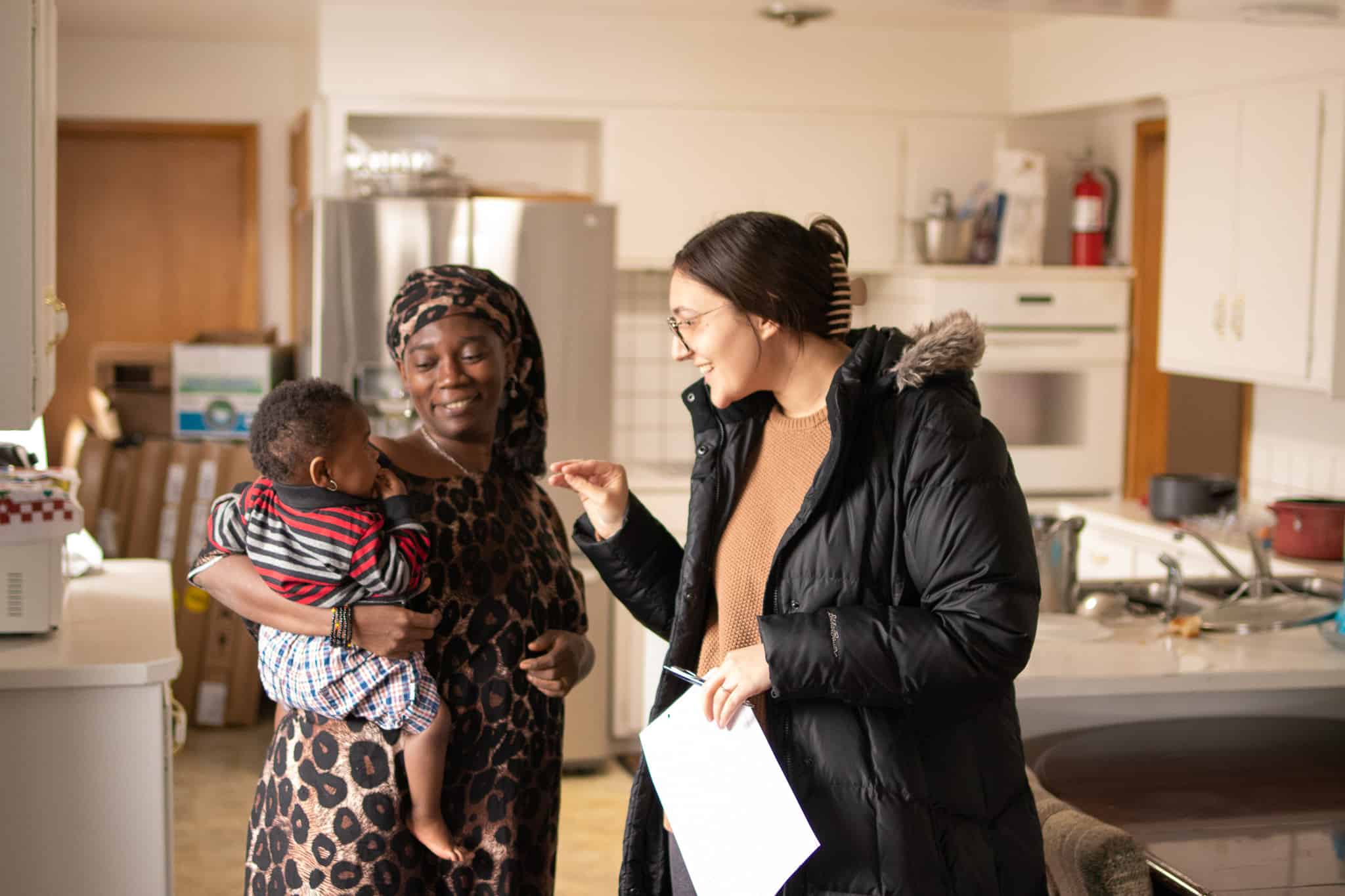
The day after arrival, a case manager visits the family in their temporary home to welcome them and begin the process of establishing roots in Spokane. The case manager explains World Relief’s role and asks questions to better understand the family’s situation and goals. The WR team provide groceries for their first few days and identifies a nearby grocery store for future shopping. Paperwork is signed and next steps identified.
Within the first week, the family comes to the World Relief office for a cultural orientation or, when appropriate, to be interviewed for enrollment in Match Grant. Match Grant is an accelerated option for families with limited barriers to employment and an eagerness to work.
Cultural orientation is meant to give the family a picture of life in Spokane and how it may differ from their previous life. World Relief staff and volunteers teach families about basic laws, resources and benefits, how to use public transportation, health and medical services, family reunification options and more.
Expectations
Part of cultural orientation is also about setting realistic expectations – on both sides. What can the clients realistically expect and what will the landlords and employers they meet be expecting?
Jordan said, “Rumors about the US abound overseas. Refugees hear that everything will be provided for them when they arrive. They will receive a house, a car, they won’t have to work or they will be given the exact same job that they did back home. The reality is that they will have to work really hard, their first living arrangement will be really basic, and they won’t have much choice of where it is.
“We try to frame these conversations by talking about how this is just a starter home, or they just need a starter job to survive. You can literally see on their faces when culture shock sets in, that this isn’t like what they were expecting.
“As a staff, we have to remember that every refugee has experienced trauma; through fleeing their country and their individual experiences. Some respond to these new situations out of frustration and can be pretty thankless. But no one on our staff took this job to be thanked. We took this job because we know welcoming the stranger is the right thing to do. It is an act of justice and of mercy.”
Getting Settled
Eugenia works closely with Erika, WR housing coordinator, to determine when a family will be able to move from temporary to permanent housing. Erika works with landlords to find permanent housing for our families. She may have to call 50 different landlords to arrange for four viewings, and from there, she may or may not locate an appropriate rental.
“About ten percent of the landlords respond to my inquiries, and only about two percent of the contacts end up being a successful resource. Refugees don’t have Social Security numbers when they arrive. They don’t have work authorization for the first 6 weeks. They don’t have a credit score, co-signers or a driver’s license – all of those are vital when applying for housing.”
Jordan says finding housing is the single most difficult part of Resettlement.
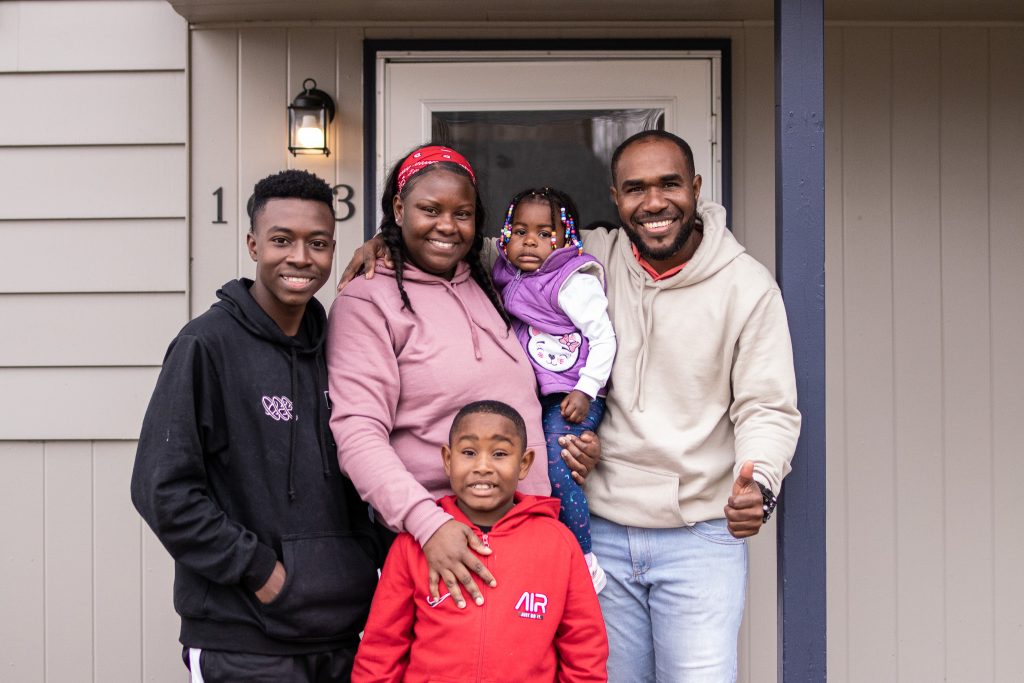
The current rental vacancy in Spokane is about 4.7 percent, up from a few months ago, but still tight.
“Just finding available housing is difficult,” Jordan said, “and then to find landlords willing to rent to refugees who don’t have a job yet and no rental history here. It is a bit of a leap of faith on the landlord’s part, and mostly, it is done because we have built relationships over the years with them.
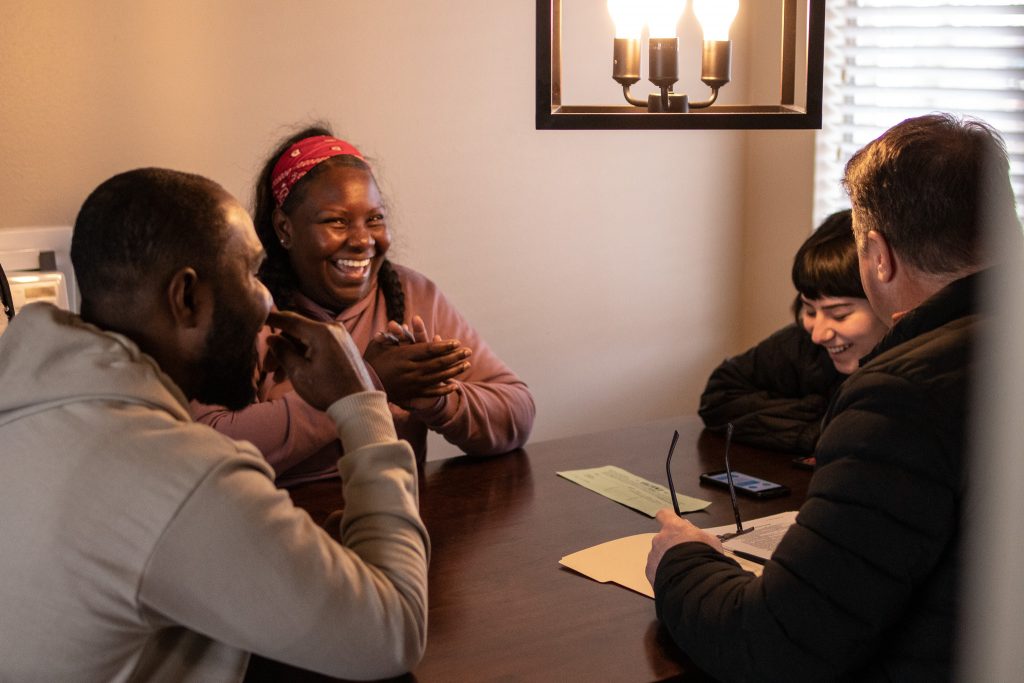
“Ongoing housing has definite challenges. We have refugees coming from dozens of different countries and cultures, and each family is different in terms of their experience with housing and the amenities they have had. We have families who speak amazing English when they arrive and who have lived in better homes than I have. They already know how to use all of the appliances. Then, we have families who have been stuck in a refugee camp for possibly decades, and we have to start from the beginning: how to use a key, how to use the stove, how to store food properly, how to keep water in the tub by using a shower curtain, and how to flush toilet paper and plunge a toilet. This family also may not speak English, but they may speak like five other languages.”
90 Days
Resettlement is all about the first 90 days – getting a family settled and off to a promising start.
“Case managers teach them how to pay their rent, help them understand how to budget, how to get a check or money order and how to send mail. I have demonstrated many times how to lick an envelope. All of this takes time and each family is different in how quickly they pick things up.”
Case managers in Resettlement also connect clients with specialists in the Economic Empowerment when they need assistance in finding jobs or with case managers in Intensive Case Management for those who need longer term assistance because of additional barriers.
End Results
After 12 years, Jordan perhaps sees the big picture clearer than anyone: “I get to tell people about the best parts of my job, like going to the airport for a family reunification case where a mom has been separated from her daughter for 12 years or a spouse has been separated from her husband for seven years. Many, many smiles and tears.
“I absolutely love enrolling kids in school and taking them to their school to take a tour and meet their teachers and show them how to take the bus the next day. They are shy and nervous and excited and full of thoughts. It’s one of the moments that you see these newcomers start to dream about what a future looks like and what is possible. For many of them, they have been stuck for years with no home and no hope. Resettling to the United States, though it is hard, allows them to dream again.
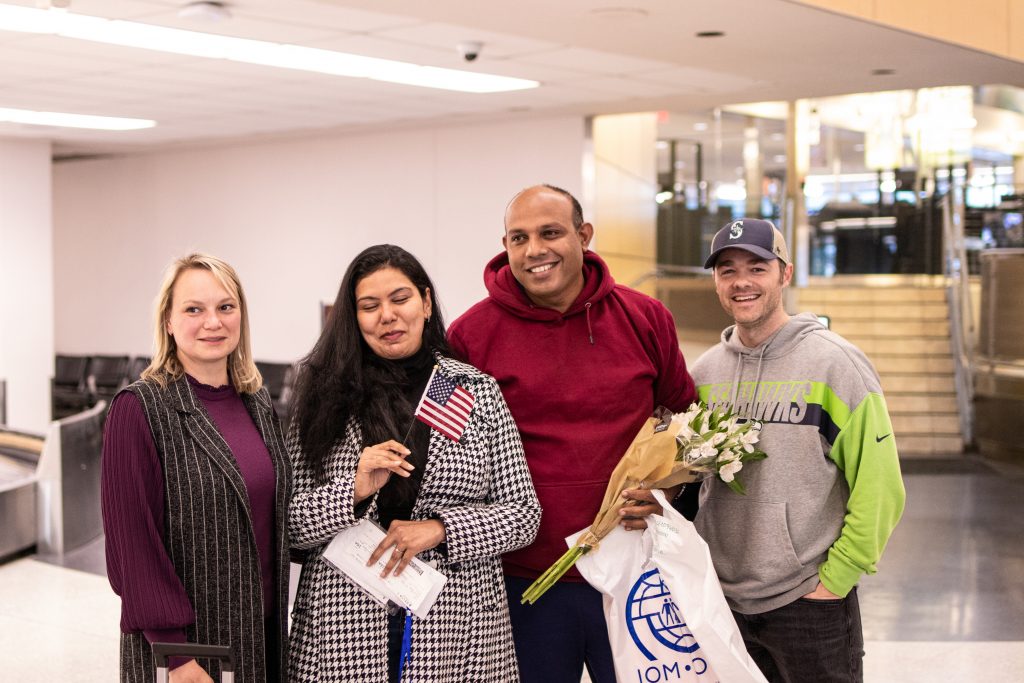
“And the other best part, since I’ve worked here so long, is being able to see the results of the hard work these families put in – the dream jobs they now how, the businesses they’ve started, the kids who’ve graduated college and have their dream jobs and are getting married, the many refugees who have gone through the naturalization process and become citizens. There is something pretty great when you stick around a place for so long and you are able to see all of these families succeed and flourish and become members of the community.”
Want to be part of this welcoming community?
We need you! We need financial partners, volunteers, and people to donate cleaning supplies, hygiene items and gently used furniture. Find out more on our website.
